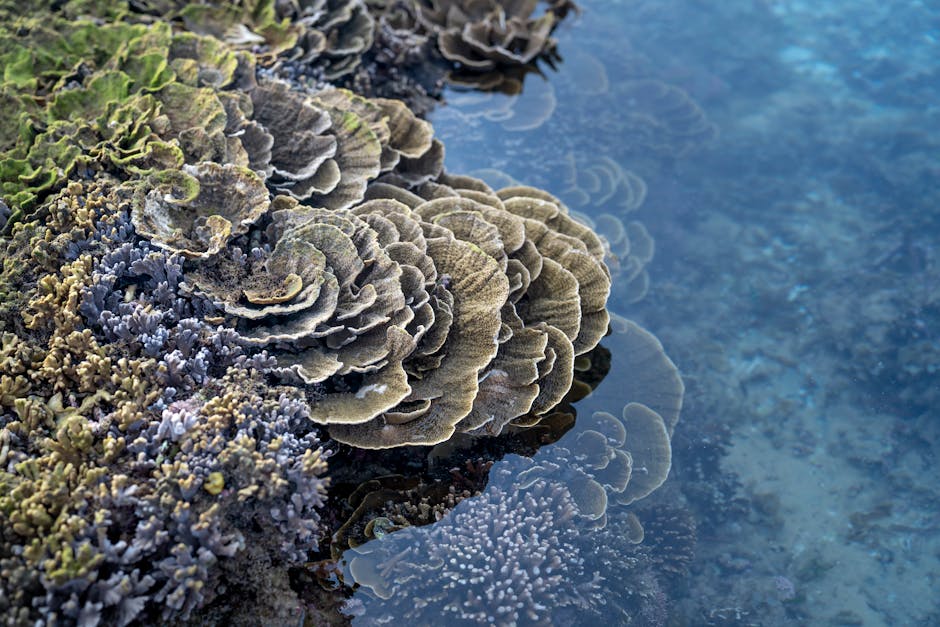The vast expanse of the ocean, encompassing more than 70% of Earth’s surface, is a complex and dynamic ecosystem teeming with life and holding a wealth of untapped resources. From the microscopic plankton to the colossal whales, the marine realm provides a rich tapestry of possibilities, offering sustenance, raw materials, and even potential solutions to contemporary challenges. This article delves into the diverse resources the ocean provides, examining their significance within the context of marine biology and oceanography.
A plethora of resources are gleaned from the sea, ranging from the fundamental to the innovative. A key aspect is the ocean’s role as a primary producer, sustaining a vast food web. Phytoplankton, microscopic algae, form the base of this web, converting sunlight into energy through photosynthesis. This process underpins the entire marine ecosystem, supporting countless organisms from tiny zooplankton to massive whales. Consequently, fisheries represent a significant resource, providing a crucial protein source for billions globally. Understanding the intricate dynamics of marine ecosystems, including species interactions and population fluctuations, is paramount for sustainable fisheries management.
Beyond direct consumption, marine organisms offer a trove of bioactive compounds with potential medicinal applications. Coral reefs, for example, harbour a wealth of organisms producing compounds with antibacterial, antiviral, and anticancer properties. These compounds are rigorously investigated by scientists in the search for novel treatments and therapies. Marine organisms have developed extraordinary mechanisms for survival in their often-extreme environments, leading to unique biological processes that offer solutions to diverse challenges. For example, the study of biomineralization in marine invertebrates may provide insights into creating stronger, lighter materials for various engineering applications.
The chemical components of the ocean’s waters also hold significant potential. Various minerals and salts are crucial for numerous industrial applications. Sodium chloride, extracted from seawater, remains a vital ingredient in countless products. Exploration into alternative extraction techniques, along with careful environmental considerations, is essential for responsible resource management. Moreover, certain oceanic processes, like deep-sea hydrothermal vents, offer unique geochemical environments, potentially containing undiscovered elements or compounds with future applications. These resources often reside in deep-sea environments, demanding sophisticated exploration technologies and rigorous environmental impact assessments.
An often-overlooked facet of oceanic resources is its role in climate regulation. The ocean absorbs a significant portion of atmospheric carbon dioxide, mitigating the effects of global warming. Ocean currents and upwellings play a critical role in distributing heat and nutrients across the globe, influencing weather patterns and agricultural productivity. Comprehending these intricate processes is crucial for predicting and mitigating the effects of climate change, which in turn impacts marine ecosystems and resource availability.
Moreover, the ocean provides a vast reservoir of energy sources. Wave energy and tidal power are renewable energy alternatives with the potential to reduce reliance on fossil fuels. Harnessing these resources sustainably, without disrupting marine ecosystems, requires careful assessment and planning. The development of advanced technologies for capturing and converting these forms of energy is a continuous area of research and development.
While the ocean offers immense potential, the exploitation of its resources presents challenges. Overfishing, pollution, and climate change pose significant threats to marine ecosystems and the sustainability of resources. Maintaining healthy oceans through conservation efforts is vital to ensure the long-term availability of these resources for future generations. Sustainable practices, including responsible fishing, pollution control, and mitigating climate change, are essential for safeguarding this critical resource.
Researchers are actively developing innovative strategies to manage ocean resources sustainably. For instance, marine protected areas are established to conserve biodiversity and promote healthy populations of marine species. The establishment and enforcement of strict regulations are also crucial for controlling fishing practices and preventing the degradation of marine habitats. Furthermore, continuous monitoring of marine ecosystems is essential to track the impacts of human activities and adjust strategies accordingly.
In conclusion, the ocean is not simply a vast expanse of water but a multifaceted source of resources, from sustenance and medicine to energy and raw materials. Understanding the intricate relationships within marine ecosystems, and implementing sustainable practices, are essential for ensuring that the ocean’s bounty continues to provide for humanity’s needs, while safeguarding this invaluable resource for generations to come. The continuous pursuit of knowledge through marine biology and oceanography is crucial for ensuring the long-term viability of these resources and the health of the planet’s oceans. Further research and innovation are vital to unlock the full potential of the ocean while minimizing environmental impact, fostering a harmonious coexistence between humanity and the marine realm.
